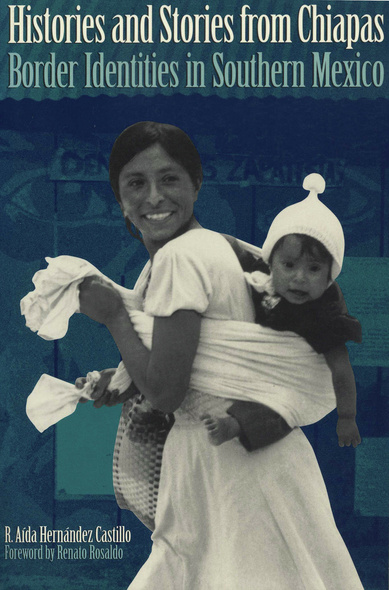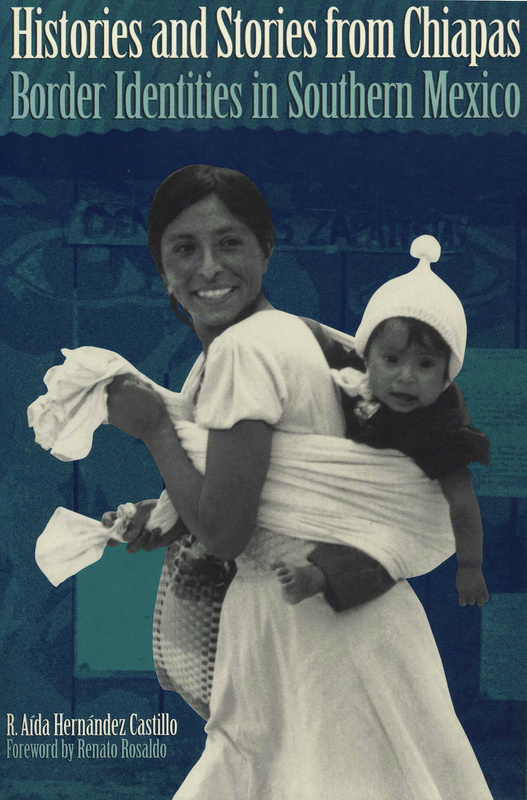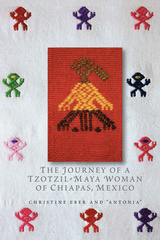Histories and Stories from Chiapas
Border Identities in Southern Mexico
The 1994 Zapatista uprising of Chiapas' Maya peoples against the Mexican government shattered the state myth that indigenous groups have been successfully assimilated into the nation. In this wide-ranging study of identity formation in Chiapas, Aída Hernández delves into the experience of a Maya group, the Mam, to analyze how Chiapas' indigenous peoples have in fact rejected, accepted, or negotiated the official discourse on "being Mexican" and participating in the construction of a Mexican national identity.
Hernández traces the complex relations between the Mam and the national government from 1934 to the Zapatista rebellion. She investigates the many policies and modernization projects through which the state has attempted to impose a Mexican identity on the Mam and shows how this Maya group has resisted or accommodated these efforts. In particular, she explores how changing religious affiliation, women's and ecological movements, economic globalization, state policies, and the Zapatista movement have all given rise to various ways of "being Mam" and considers what these indigenous identities may mean for the future of the Mexican nation. The Spanish version of this book won the 1997 Fray Bernardino de Sahagún national prize for the best social anthropology research in Mexico.
As a multi-layered history of power and identity in Chiapas, this study is without parallel. It offers a richly textured and well-documented history of how the Mam of Chiapas have constructed their own conceptions of identity and citizenship.
Born in Ensenada Baja California on the northern Mexican border, R. Aída Hernández Castillo has worked and lived among Guatemalan refugees and Chiapas' indigenous peoples on the southern Mexican border since 1986. She is now a researcher-professor with CIESAS (Center for Advanced Studies in Social Anthropology) in Mexico City.
- Foreword by Renato Rosaldo
- Preface
- Acknowledgments
- Introduction
- First Border Crossing. Don Roberto: Working for Change in the Sierra
- 1. The Postrevolutionary National Project and the Mexicanization of the Mam People
- Forced Integration into the Nation
- Mam Women and the Myth of Mestizaje
- Federal and Local Indigenismos
- From the Finca to the Ejido: Economic Integration
- Presbyterianism and a New Mam Identity
- 2. The Modernizing Project: Between the Museum and the Diaspora
- The "Stabilizing Development"
- Anthropologists in the Sierra: The Mam People as Health Problem and as National Heritage
- Diaspora to the Rain Forest
- Second Border Crossing. Pedro: Searching for Paradise on Earth
- 3. Mam Jehovah's Witnesses: New Religious Identities and Rejection of the Nation
- In Search of Paradise
- Everyday Life at Las Ceibas
- The Strength of Utopia and Antinational Discourse
- Different Contexts, Different Identities
- 4. From Mestizo Mexico to Multicultural Mexico: Indigenism in the Sierra Madre
- Two Struggling Perspectives
- From San Cristóbal to Pátzcuaro
- Participative Indigenismo
- The CCI Mam-Mochó-Cakchiquel
- Third Border Crossing. Don Eugenio: "Rescuing" Mam Culture
- 5. Mam Dance Groups: New Cultural Identities and the Performance of the Past
- The Mam Supreme Council
- Mam Dances
- Memory and Performance of Everyday Life
- Dispute in the Construction of Mam Traditions
- Fourth Border Crossing. Doña Luz: Organizing for Women's Rights
- 6. Organic Growers: Agro-ecological Catholicism and the Invention of Traditions
- The Foranía de la Sierra: The New Social Ministry
- Globalization and Organic Markets: Mam Identity and Agro-ecological Discourses
- New Cultural Discourses and the Reinvention of Mam Utopia
- Collective Reflection and New Spaces of Organization
- Mam Women and Gender Demands
- 7. From PRONASOL to the Zapatista Uprising
- Salinismo: The Administration's Two-faced Policy
- PRONASOL Indigenismo
- The Impact of the Zapatista Rebellion on the Life of Mam Peasants
- Claiming the Power to Name: The Struggle for Autonomy
- The Voices of Women
- Again a Two-faced Policy: Economic Aid and Paramilitarization
- Conclusion
- Notes
- Glossary
- Bibliography
- Index






